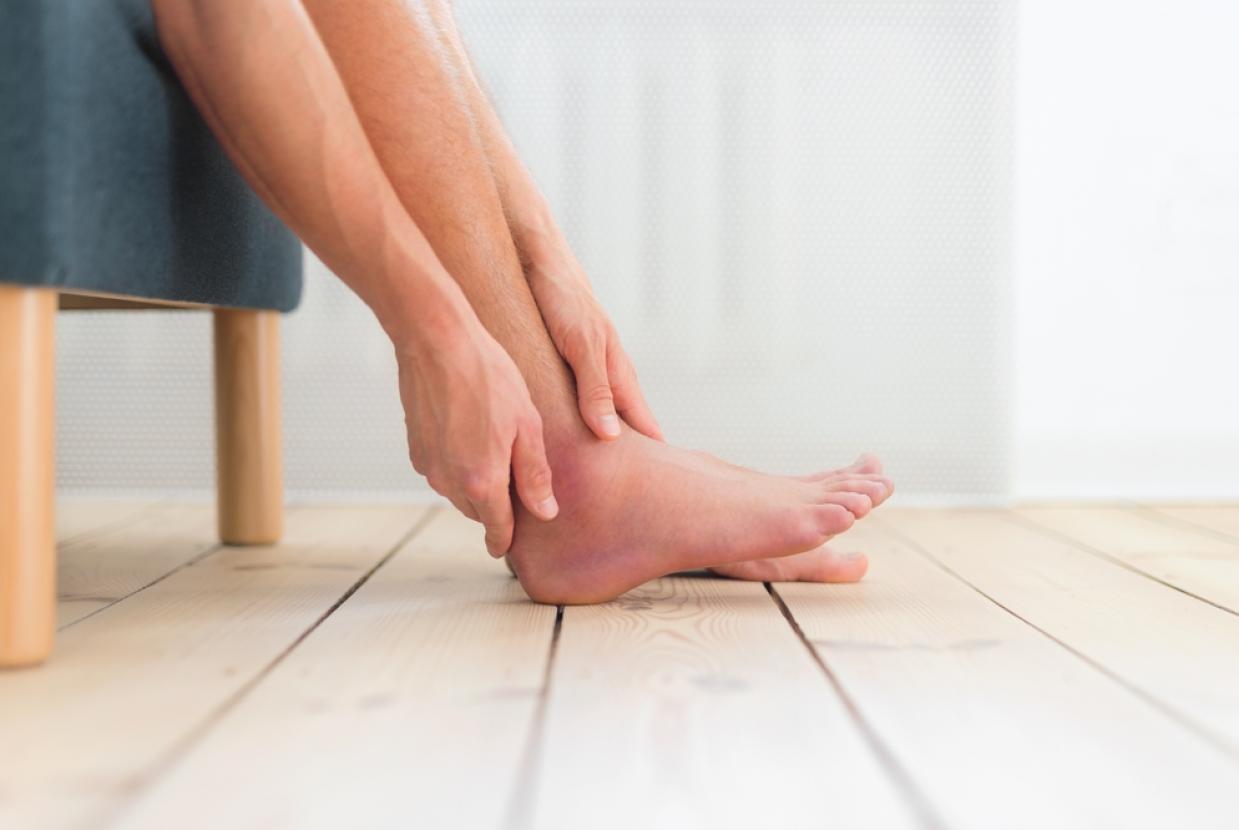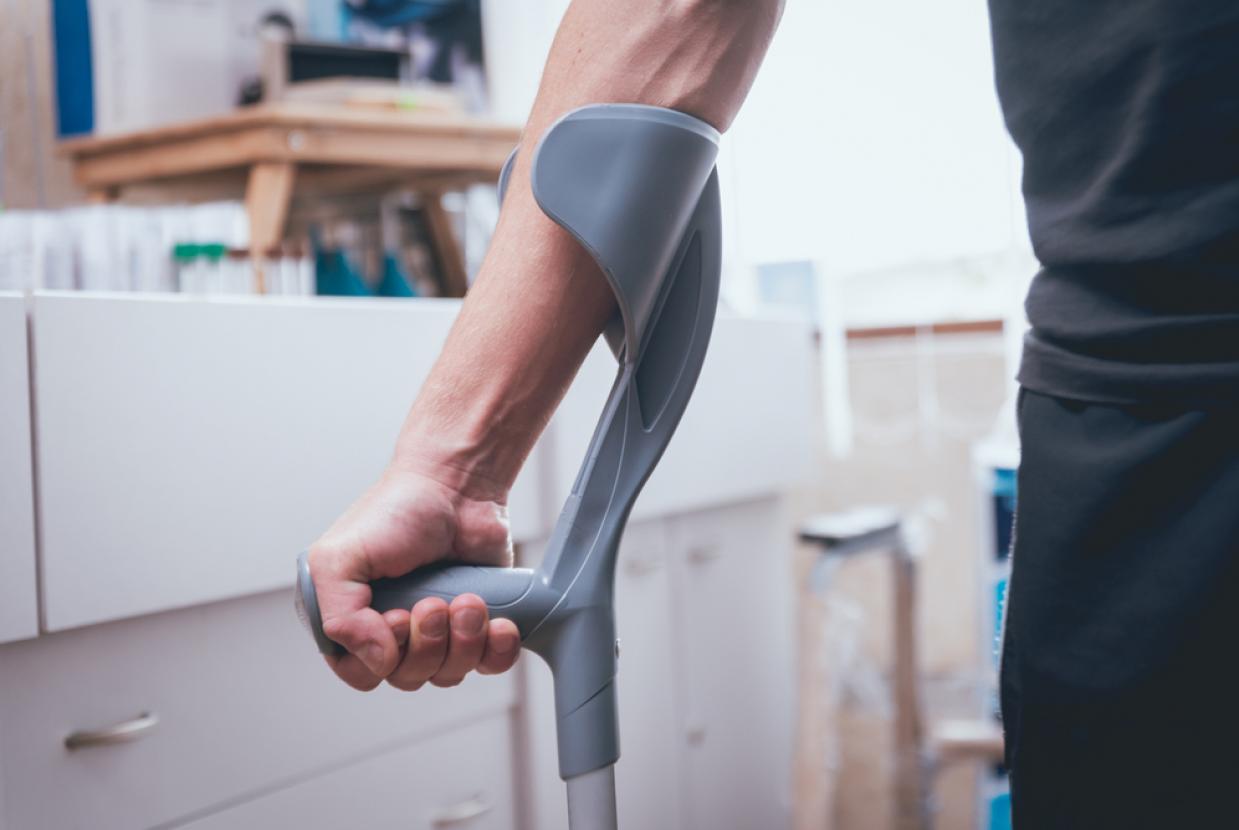Living With Arthritis: Top Tips For Talking About Your Condition
Arthritis/Back Pain/Joint PainOpening up about your health isn’t always easy. Sometimes it can be hard to put pain into words and admit when we’re struggling. But when you live with arthritis, it’s important to be able to talk to the people around you about how you’re feeling. Communication is vital in ensuring you receive the right treatment, care and support.
Here, people living with arthritis share how they have learnt to open up about their conditions and offer their tips.
Surround yourself with the right people
While talking about how you’re feeling isn’t always easy, it’s a lot easier to share with people who will be kind, empathetic and understanding.
James, who has rheumatoid arthritis and ankylosing spondylitis, has learnt that surrounding himself with the right people makes talking about his conditions much easier.
“I’ve had to cut people off who don’t understand, remove that bad energy,” says James. “You’ve got to surround yourself with the right people, with those who are supportive and understanding at the same time.”
One of James’s understanding friends is Anish, who he has travelled with a lot over the years.
“I felt comfortable [travelling] with Anish because I knew he wouldn’t have judged me if I wasn’t feeling able to do certain things,” says James. “Having compassion and understanding is really important.”
Join a Versus Arthritis group
If you don’t feel able to talk about your arthritis with friends and family just yet, joining a support group might help you to become more comfortable talking about how you’re feeling. It could also help in building your support network and making new friends you are able to speak openly with.
Lisa, who has rheumatoid arthritis and osteoarthritis, found attending a Versus Arthritis group in her local area really helped her to open up.
“It was such a relief to meet other people who understand what’s going on,” says Lisa. “I found the information there really helpful. They’ll tell you the things you should be asking for that you’re not getting. It’s nice to be sitting in a room where you can have a moan.”
Be supportive of others
Staying connected to the people around you can help you to build stronger relationships, manage stress, and can positively impact your mental health. Bethan, who has fibromyalgia and works at a university, believes that being honest and upfront with people, and spending time listening to each other, helps everyone.
“I take every opportunity to be that supportive person and be there for others,” she says. “As a manager, it’s really nice when someone comes and talks to me because it shows they can trust me.”
“There are so many health conditions out there that people don’t know about. I can be really open now and discuss things with other people and be understanding of what others go through.”
Try writing or keeping a diary
Sometimes, we might struggle to talk about how we’re feeling because we don’t quite understand it ourselves.
If you’re feeling like this, writing down what’s in your head can help you make sense of your thoughts and communicate them to those around you. Keeping a written document such as a pain diary can also help you to talk about your symptoms to a medical professional.
Jenny, an author who has psoriatic arthritis, finds writing helps her to express herself. In her young adult book The First Move, her main character Juliet has juvenile idiopathic arthritis (JIA).
“Through the book, I was able to get into Juliet’s head and talk about… thoughts I wouldn’t say to someone in real life, but which were a lot easier to say through Juliet,” says Jenny.
“You can write about things that are true in your life that you might find difficult to express aloud. It helps you deal with things in a different way.”
Post on social media
Emma, who has psoriatic arthritis, has found it helpful to talk about her condition on social media.
“I was inspired to start opening up about my condition and sharing my diagnosis journey on social media as when I was first diagnosed, I felt quite lost and couldn’t see much about it online,” says Emma.
Emma likes to balance her posts with a mixture of real, honest updates and humour, and will share information from trusted sources such as Versus Arthritis to help raise awareness of her condition.
“Sharing online has definitely helped me be more open about my condition,” she says. “I choose not to hide the worst parts as that’s the reality of it all. The whole point is to raise awareness and show others that things can get better and that they can overcome the harder times.”
You might also like to talk to people about your arthritis on the Versus Arthritis online community, a safe online space where you can chat with others in a similar situation, ask questions, share how you are feeling or tell others about any great daily life tips.
Call the helpline
While it’s important to be able to talk about how you’re feeling with your loved ones, sometimes you might prefer to talk to someone more impartial. The Versus Arthritis helpline is a free and confidential telephone service with a team of friendly advisers who offer tips, advice and a sympathetic ear. It runs from 9am to 6pm Monday to Friday.
Gary, who has osteoarthritis, called the helpline when he was diagnosed and had just learnt that he needed a hip replacement.
“I was quite shocked when I got the diagnosis,” says Gary. “I didn’t know what to expect, especially with the hip replacement. That’s what made me call the helpline, to get a bit more information about the procedure and to talk to someone.


































































